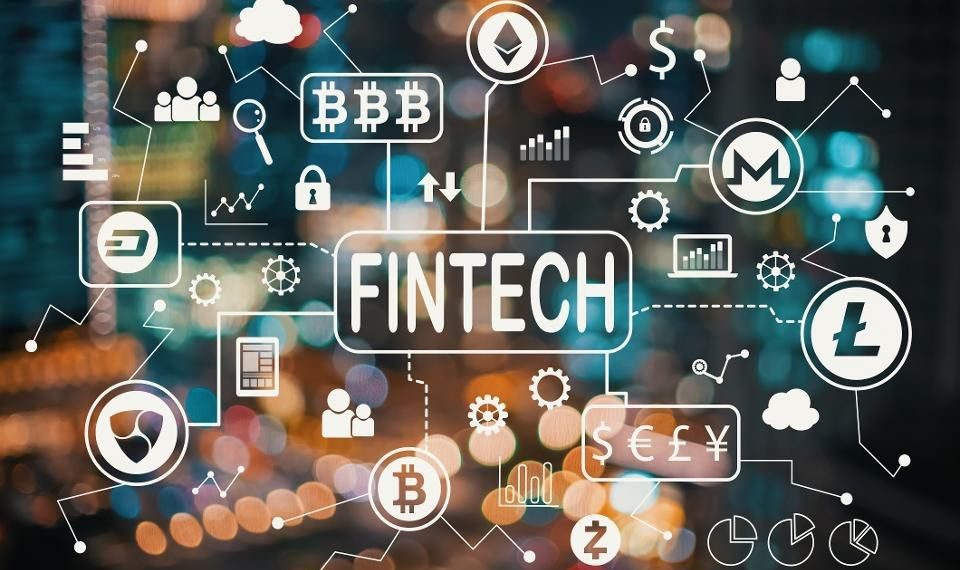INTRODUCTION
On 21st March 2019, Ghana passed the Payment Systems and Services Act 2019 (Act 987), as part of her initiatives to digitise her economy. The 2024 Cash-lite Agenda by the Bank of Ghana is to
- Foster efficient payments;[1]
- Improve financial inclusion; and
- Enhance financial innovations.
In an address[2] by Dr. Ernest Addison[3] at the Inauguration of Payment Systems Advisory Committee, Dr. Addison stated that due to the increasing digitisation of payment systems, in the country and globally, it was incumbent on Ghana to develop a strong regulatory framework to oversee the emerging financial digital environment. It is against this sentiment that the Payment Systems and Services Act 2019 (Act 987) was passed.
In this Article, the author seeks not only to discuss the inclusion of Fintech companies in the economic framework of Ghana but also discuss the new Payment Systems and Services Act 2019 (Act 987) which is aimed at ensuring a stronger legal framework within the Fintech industry.
WHAT IS FINTECH?
As the world continues to push for a cashless society, many economies have seen a rise in Fintech (financial technology). Fintech broadly refers to computer programs and other technology used to support or facilitate banking and financial services. Popular examples of Fintech used in everyday life in include, crowdfunding platforms, blockchains and cryptocurrencies, mobile payments and budgeting applications.
- Crowdfunding Platforms
Popular crowdfunding platforms such as GoFundMe and Patreon allow internet users transfer money to each other. Often used as a means to create a money pool, more people are inching away from the traditional way of seeking sponsorships through letter writing and loan applications; and are instead soliciting funds from fellow internet users worldwide.
- Blockchain and Cryptocurrency
With the advent of bitcoin, cryptocurrency sparked global interest. Cryptocurrency, i.e. virtual or digital money which often takes the form of tokens or coins, uses cryptography to secure financial transactions, and verify digital transfer of assets. This form of Fintech uses blockchain technology, which is an electronic ledger dependent on peer to peer systems, to reduce the incidence of cyber fraud and governmental control and interreference. This ledger is openly shared among a myriad of users to create an unchangeable record of transactions; each transaction is time-stamped and linked to the previous one making it impossible for one user to gain a monopoly or commit fraud. Every time a set of transactions is added, that data becomes another block in the chain thus the name “blockchain”.
- Mobile Payments
Per data from Statista[4], revenue from mobile payments increased worldwide from $450 billion in 2015 to $930 billion in 2018 and is expected to reach $1trillion in 2019. With the spread of smartphones, mobile payments through applications and platforms like “Apple Pay”, “Paypal”, “Cashapp” and “Venmo” are fast gaining popularity. In some countries, basic mobile phones suffice to transact these mobile payments. For instance, telecommunication companies such as MTN and Vodafone have created an electronic wallet service called mobile money, which allows mobile phone users to receive, store and spend money using their devices.
- Budgeting Applications
Increasingly, individuals are beginning to rely on their smartphones for even the most basic tasks such as setting alarms and reminders, and now, fiscal responsibility. Users can easily keep track their income and expenses. These applications are often synced with the user’s bank accounts, credit cards, electronic wallets to aid track incoming and outgoing money.
EVOLUTION OF FINTECH IN GHANA
The start of Fintech in Ghana may be attributed to the introduction of the Sika Card in 1997 by then Social Security Bank (now Société General) which allowed holders conduct cashless transactions. Its main function was to reduce the use of large sums of money for transactions.
Subsequently, the Bank of Ghana, incorporated a subsidiary called the Ghana Interbank Payment and Settlement Systems (GhIPSS) Limited in 2007 with the aim of migrating Ghana to an electronic payments society; leading to the introduction of the E-Zwich and Ghlink smartcards which set the pace for biometric banking worldwide. The interoperability of the E-Zwich and Ghlink cards offered banks and other deposit taking institutions a digital platform to operate from.[5] The E-Zwich card is currently the only smartcard with nationwide access.
Soon, traditional banks began to collaborate with financial technology companies, to provide their clientele with a variety of services such as digital credit, Unstructured Supplementary Service Data (USSD) services, mobile banking services, and Point of Sale (POS) devices.
In response to the rise of Fintech in Ghana, the government of Ghana passed the first ever Fintech related legislation, the Electronic Transactions Act 2008, (Act 772), in 2008. The objectives of the Act as stated in section 1 of the Act included:
- The provision and facilitation of electronic communications and related transactions in the public interest,
- Removal and prevention of barriers to electronic communications and transactions;
- Promotion of legal certainty and confidence in electronic communications and transactions;
- Development of a safe, secure and effective environment for the consumer, business and the Government to conduct and use electronic transactions;
- Promotion of the development of electronic transaction services responsive to the needs of consumers;
The growth of society to accommodate Fintech required a corresponding growth in the legal sector. As stated by Lord Denning in PARKER V PARKER (1954) AER 22
“… if we never do anything which has not been done before we shall never get anywhere. The law will stand still whilst the rest of the whole world goes on. That will be bad for both.”
The Electronic Transactions Act 2008, (Act 772) was to be applicable to all forms of electronic transactions including financial transactions and was the primary legislation regulating mobile money transactions. In the same year, the Bank of Ghana (BOG) published the Guidelines for Branchless Banking in Ghana. These guidelines, directed at financial institutions alone, received a less than welcoming response from its intended audience due to its restrictive nature.
This set an enabling environment for the birth of the e-wallet service by MTN Telecommunications in 2009 known as MTN Mobile Money. The service allowed MTN sim holders make payments, transfer and store monies, through an electronic account linked to their mobile numbers. Soon, this service spread across other Telcoms in the country leading to the introduction of Vodafone Cash by Vodafone; Airtel Money by the then Airtel Telcom, and Tigo Cash by the then Tigo Telcom.[6] However, due to challenges in interoperability, transfers and payments were limited between users of the same Telcom service; MTN users could only transfer monies to other MTN users, which was the same for Vodafone and AirtelTigo. By 2018, according to statistics from the Bank of Ghana, there were over thirty million mobile money across the country.[7] As reported by Quartz Africa, Ghana is currently the fastest growing mobile money market in Africa.[8]
By 2015 mobile money had been firmly established on the Ghanaian landscape. Additionally, more Fintechs such as Expresspay[9] Slydepay, Mazzuma[10], and Zeepay, had made its way into the Ghanaian corporate industry. These new Fintech companies provided e-Commerce market places and a payment gateway services, expanding the scope of financial related technology in Ghana. This required a corresponding regulatory system in tune with the financial technology in Ghana at the time. As such, the Bank of Ghana published the Guidelines for E-Money Issuers, which wholly rescinded the Guidelines for Branchless Banking. These Guidelines, which were much more flexible made room for not only financial institutions, but mobile operators as well.[11]
The new Guidelines were introduced to, among other things,
- Extend financial services beyond traditional branch-based channels to the domain of every day transactions;
- Ensure that electronic money is only provided by (a) financial institutions regulated under the Banking Act, 2004 (Act 673) or (b) duly licensed non-bank entities which are engaged solely in the business of e-money and activities related or incidental to the business of e-money and which are regulated and supervised by the Bank of Ghana (“Dedicated EMIs”);
- Ensure that customers of e-money issuers benefit from adequate transparency, fair treatment, and effective recourse.
The Guidelines also introduced a three-tiered account structure approach to knowing customers which allowed individuals with insufficient or no ID (identification) to be included in the formal financial industry. Under these Guidelines, the range of fintech services included
- e-payments
- electronic wallets known as mobile money
- over the counter transactions,
- savings products in partnership with banks and other deposit taking agencies
- insurance products.
In 2018[12], the Bank of Ghana under GhIPSS, launched the first ever interoperability system in Ghana, which not only allowed seamless transactions between the different networks[13], but also gave E-Zwich card holders the freedom to make transactions at any bank. Prior to the interoperability system, E-Zwich card holders could only make transactions within the specific bank where the E-Zwich account was held.
Earlier this year, the Ghana Commercial Bank, under the auspices of GhIPSS launched a digital wallet, G-money, and an interoperable QR Code system[14] as part of the efforts to digitise traditional banking.
However, the regulations discussed above were still woefully inadequate to deal with the rise of Fintech in Ghana. The old laws and regulations, as stated by Joseph-Albert Kuuire[15], failed to make provisions for emerging payment streams such as electronic money, prepaid cards, credit cards, electronic platforms and payment instruments. Hence, in March 2019[16], the Government of Ghana passed the Payment Systems and Services Act 2019 (Act 987), which allows for a direct regulation of Fintech industries by the Bank of Ghana.
In the words of Dr. Maxwell Opoku-Afari, First Deputy Governor of the Bank of Ghana (BOG),
“digital innovation is creating unprecedented opportunities for Africa to grow its economy, create jobs, and transform people’s lives… Digitisation is a key component of the “Ghana Beyond Aid Agenda” which is firmly anchored in leveraging technology to promote economic efficiency and inclusiveness for accelerated development and poverty reduction.[17]”
TO BE CONTINUED……
By: Adwoa E. Paintsil, Esq.
This Article was put together with the aim of educating the public on the new Payments Systems and Services Act 2019 (Act 987).




















